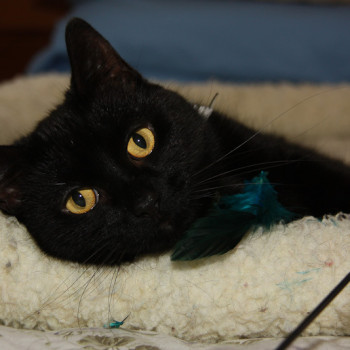You may know Feline Immunodeficiency Virus (FIV) isn’t a death sentence for cats. But did you know exactly how it impacts the length of time they live? Would it surprise you to know it doesn’t?
At the 2015 NAVC Veterinary Conference, Annette L. Litster, BVSc, PhD, FANZCVSc (Feline Medicine), MMedSci (Clinical Epidemiology), former Director of the Maddie’s Shelter Medicine Program at Purdue University and currently of the Zoetis Veterinary Specialty Team, presented on “Feline Immunodeficiency Virus: What Every Shelter Needs to Know.” In it, she had this to say:
There have been a number of retrospective studies of cats naturally infected with FIV. One study described a closed household with endemic FIV, FeLV and feline coronavirus observed over 10 years. Nine of 26 cats were initially infected with FIV; 6 additional cats became infected with FIV by the end of the 10-year study period. FIV infection did not adversely affect life expectancy in this household.
In a retrospective Canadian study, 39 FIV-positive cats were compared with 22 FIV-negative cats over approximately 8 years. The survival time of FIV-positive cats after diagnosis was not different from FIV-negative cats.
Dr. Litster also covered prevention, diagnosis, treatment, recent research, and adoption tips for FIV+ cats. VetFolio members can read the proceedings here; others can view an earlier version of this material on our website in Update on FIV: What Every Shelter Needs to Know.
Also of interest:
Management of Feline Retrovirus Infections
Vet to Vet: Serial FIV Serological Results in Cohabiting FIV-Positive and FIV-Negative Cats
FeLV and FIV
FIV Testing in Animal Shelters – Why, Who and When?
FIV-positive and FIV-negative cats: A love story
Are we over-reacting to the risk of FIV transmission?
Don’t miss the rest of our great content — sign up here!

